Enlightening Different Cultures About Islamic Culture
When entering the global media environment today one may be able to guarantee the delivery of a certain message or idea, however it is harder to guarantee a desired level of effect for this message unless one is equipped with appropriate ‘impact tools’ for navigating this complex environment.
Media impact tools, when regarded from a realistic point of view, are seen to be based on facts and values which develop on parallel lines. Thus if one line were to deviate away from the other, the message conveyed will be at fault.
After the fall of the Baathist regime in Iraq in 2003, the nation’s media environment was expanded beyond any other point in its history. The Holy Shrine of Imam Hussein played a vital role in this expansion, by taking the first steps to pursue an internationally and locally–balanced media policy; resulting in the emergence of an international media portfolio which encompasses several foreign language outlets distributing via a variety of different means. The purpose of this move was to educate people in accordance with the tolerant principles of the Islamic religion and the concepts of the Ahlulbayt that call for peace, justice, coexistence, and respect for all peoples irrespective of religion, colour, race, or nationality.
The English Portal
Maher Ali Soltan, supervisor and coordinator of the Hussein Revivalism magazine in London, spoke about the responsibility of the consulting committees for the foreign publications of the International Media Unit in delivering the Husseini media to Western societies stating that,’The International Media Unit’s publications provide positive effects and achieve numerous goals in our society.’ Ali Soltan went on to elaborate on the following points:
The importance of communicating with different Shi’a communities in Europe, especially Britain, to maintain the coherence with the concepts of the Infallibles, particularly Imam Hussein.
The need to coordinate with various Shi’a centres to ‘join-up’ the efforts regarding the main objectives of the revivalism of Imam Hussein and to help create awareness of the humanitarian foundations of Shi’a thought in Western societies.
The necessity to communicate the oppression of the Shi’a to the West, emphasising that they are peaceful victims of extremism and terrorism, rather than its perpetrators.
To focus on the humanitarian aspects of the revivalism of Imam Hussein such as teachings regarding childhood, women, pluralism in races and religions, etc.
As regards future aspirations to improve the global media environment and strategies for disseminating to the greatest number of groups in both Western and Islamic societies, the following approaches will help to achieve this goal:
Improving the quality of the English publications.
Encouraging participation from Western readers, such as the publication of their articles in various magazines.
Attempting to reach the greatest number of foreign readers through interacting with our active youth organisations.
Organising visits and trips to the holy shrines for selected readers via competitions and prize-draws.
Establishing exhibitions and symposia, which introduce and explore the revivalism of Imam Hussein.
This is in addition to expanding the financial and moral support of the International Media Unit (IMU) through opening branches in selected countries to broaden the informational, cultural, and religious activities around the world.
Utilising Communications Technology
Saad al-Saffar, chief editor of the Canadian-based Arabic/English al-Saha Magazine, spoke to Hussein Revivalism about the role of media: ‘Media plays a big role in turning the orientation of the viewer/reader in line with the intellectual framework for decision–makers and media producers. The development of modern communications technology reflects the way an event is being covered and portrayed in the imaginations of viewers and reader.’
With regards to specifically Islamic media, we must utilise contemporary technological advancement and its impact on the globalisation of the media environment as this can play a considerable role in influencing people’s opinions.
One of the best ways to advance Islamic media in today’s world is through analysing key challenges and geopolitical issues such as terrorism, unemployment, and social disintegration in certain countries and then identifying the role of Islamic culture in addressing and ameliorating these issues.
Another point worth mentioning is the importance of fostering cooperation between the Islamic media organisations in both Islamic and non-Islamic countries. This is especially necessary in the present time, due to the challenges encountered by various political systems, and the effects of and threat posed by the globalisation of the media environment to Islamic thought.
It is of course also necessary to address global communities in their own particular languages, and, to this end, Islamic media organisations can and should benefit from Muslim communities who have grown up abroad delivering the message of Islam to their peers. It should not be forgotten that the media plays a large role in Western societies, and that media can greatly influence public opinion through political and economic organisations, which in turn inform the legislative and executive decision-making bodies in a nation.
Al-Saffar also pointed out that the Holy Shrine's media, especially its various publications, was able to deliver an important part of the real Islamic message to the Muslim communities in the West.
The French Gateway
Madame Sylvie Gerard Fontaine, an Islamic activist, writer, and founder of the Dar al-Orwatul Wuthqa Project in France, spoke with optimism about the humanitarian media, ‘…the international media which is committed to a moderate Islamic culture calling for coexistence and tolerance is stepping forward, though slowly. We hope that this media develops intellectually to become conducive to a mutual understanding of and between civilisations.’
The International Media Unit in Karbala has itself undertaken efforts to promote an Islamic, moderate, and responsible behaviour that enlightens nations with peace, love, and mutual respect.
We look forward to more attention on the IMC in Karbala, making it the primary focal point for engaging the good attention of different civilisations via an increased diversity in means such as establishing: conferences, exhibitions, symposia, and other disparate cultural activities worldwide. The current distribution of media means are limited and are in need of both qualitative and quantitative expansion in order to attract others to the teachings of the Ahlulbayt.
The German Gateway
Journalist Ali al-Badri, supervisor and consultant of the printing, publishing, and translation of IMC's German publications, mentioned that ‘In the West, there is both a lack of information about basic Islamic principles, on the one hand, and a small group who seek to undermine and discredit moderate Islamic discourse on the other. IMU's German magazine seeks to deliver the morals inherent to the revivalism of Imam Hussein to the Western world in general, not only to Muslims but also to anyone searching for the truth of Islam.’
As we know, Imam Hussein sacrificed everything he had for the sake of the religion and his blessed revivalism was not to be monopolised by any specific religion, sect or tribe, but was an extension of his grandfather's universal message—that was directed to all people.
‘The name of Imam Hussein remains an attractive force, especially if we are invested in reaching the hearts of believers. Indeed I am certain that nothing unites our discourse in Europe more than this great title.’
Badri added that, ‘…as far as our ambitions are concerned, as a consultant for the German magazine, I will not stop at this point. We aspire to expand the distribution and delivery of the morals of Imam Hussein to all German-speaking peoples. We strive to become a monthly magazine and establish a headquarters in Berlin to manage the coverage of Islamic activities from both inside and outside Germany, as we are in touch with the Holy Shrine to achieve the project of translating numerous prominent and beneficial Islamic books.’
Importance of Media in Europe
Dr. Alaa Shatnan, supervisor and general coordinator of IMU's French publications, remarked in regards to the role of European culture in supporting the efforts of encouraging a moderate Islamic culture that, ‘… these days, there is a general misrepresentation about Islam in the media. There is a pressing need to communicate with the social and cultural communities in France to consolidate the culture of the Ahlulbayt and introduce to the world this rich cultural and intellectual heritage of their contributions. It is also important for the West to realise that a minority violating the rights of mankind and murdering in cold blood is a Takfiri group that is in no way representative of Islam in general, nor does it reflect those whose follow the Ahlulbayt.
Moreover, as a result of this unfavourable media climate, the presiding opinion in the West is that Iraq today is a weak country with no culture or freedom of thought. We showed the falsity of this portrayal after the last Rabee al-Shahada International Cultural Festival, by inviting a delegation from France with the intention of enhancing Iraq's cultural standing abroad and dispelling the embellished stereotypes regarding conditions in Iraq.
The Turkish Gateway
Journalist Mahmut Gok, supervisor and coordinator of printing and publishing IMU's Turkish publications, added that ‘We must hold more effective activities in terms of media discourse as well as in the diversification of our media. We are in great need of satellite channels that will put the issues concerning the Islamic nation on the table in order to disseminate a dialogue and open exchange of views that counter extremist narratives in order to clarify the true nature of the Islamic religion.’
Gok concluded by saying, ‘We need media branches that will hold various cultural activities around the world to show the world what Muslims are facing.’
The Asian Gateway
Ghayour Zaidy, translator and consultant for IMU's Urdu magazine in Islamabad, explained that, ‘…the beliefs of those who follow the Ahlulbayt, especially in the subcontinent, stretch back over a millenia. Every one of them wishes to visit Imam Hussein even just once in their life, and they hang pictures of the holy shrine as tokens of the extent of their love and devotion. We can often feel far removed from the predicament of the holy shrines in Iraq—as well as the good verdicts and opinions of the religious authorities—however, coming to Karbala and publishing the Rouza Husseini magazine has enabled us to become closer than ever to Imam Hussein, his blessed revivalism, and the religious authorities.’
‘Rouza Husseini is the only Urdu magazine published by the Holy Shrine and it is distinguished through its selected articles and reports. Many Shi’a households in Pakistan have subscribed to the magazine and nearly all have been encouraged by others to do so.’
As far as development is concerned, we need to do the following:
Prepare a sufficient amount of copies in the sales department of the Holy Shrine for foreign pilgrims.
Create competitions and prize-draws for readers of the magazine.
Pursue marketing through electronic media.
Providing the readership with tokens of blessings from Karbala; in the form of posters, calendars or the like.
The International Media Unit of the Holy Shrine of Imam Hussein
The International Media Unit of the Holy Shrine of Imam Hussein was established in 2011 in line with concomitant developments in the global media; for the purpose of disseminating the teachings of the Ahlulbayt in different world languages, and to provide a forum for reporting on the religious, educational, cultural, social, and political updates from this holy city.
This Unit has published periodicals in seven different languages, alongside numerous brochures and guides of interest to an international readership.
Moreover, the media discourse in the IMU is distinguished for its moderate and humanitarian approach to a variety of different subjects.
The International Media Unit also runs a website in Arabic and English that is updated daily with the latest news, reports, and articles directly from the Holy Shrine.
The next step forward for the Unit is envisaged to be the preparation and establishment of consulting committees around the world through which to convene an effective and wide-ranging annual programme of events and activities.



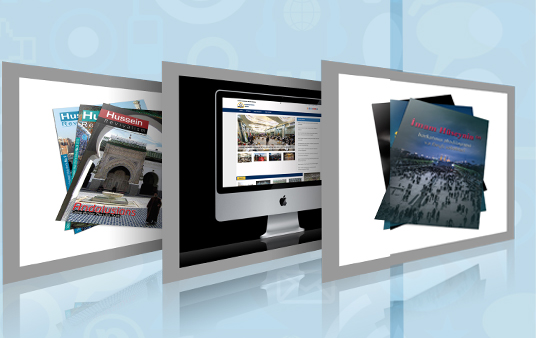
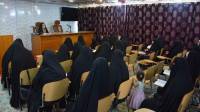

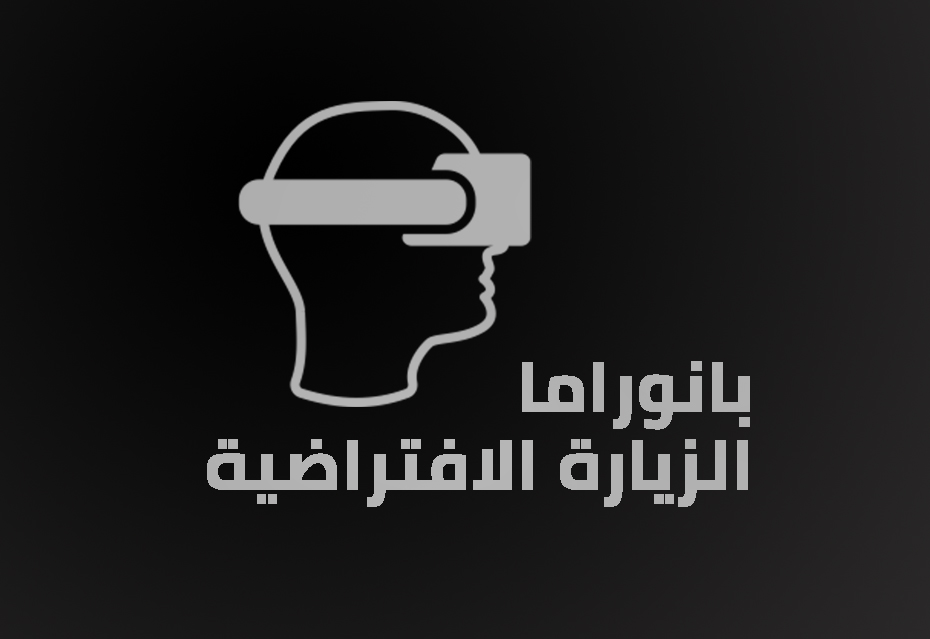
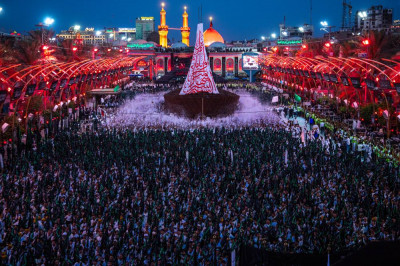
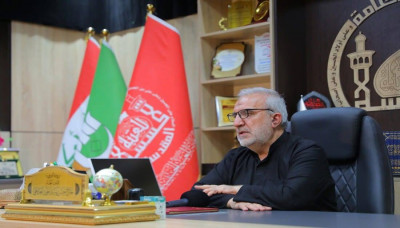
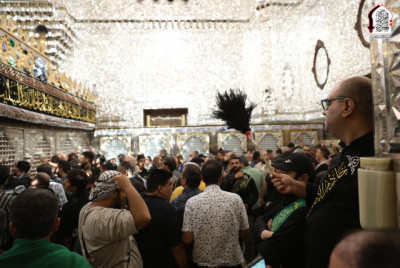
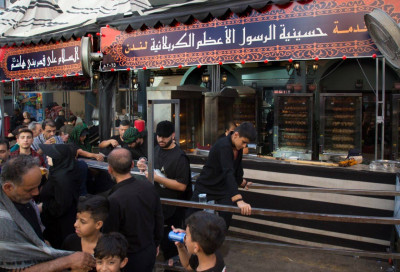
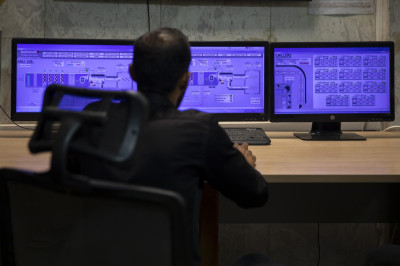
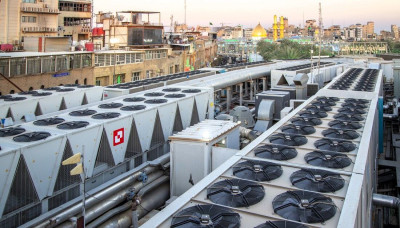
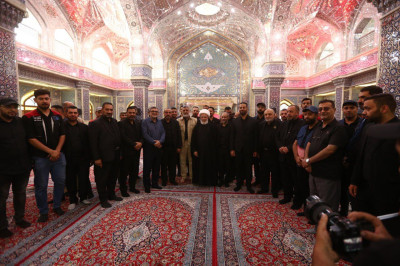

اترك تعليق